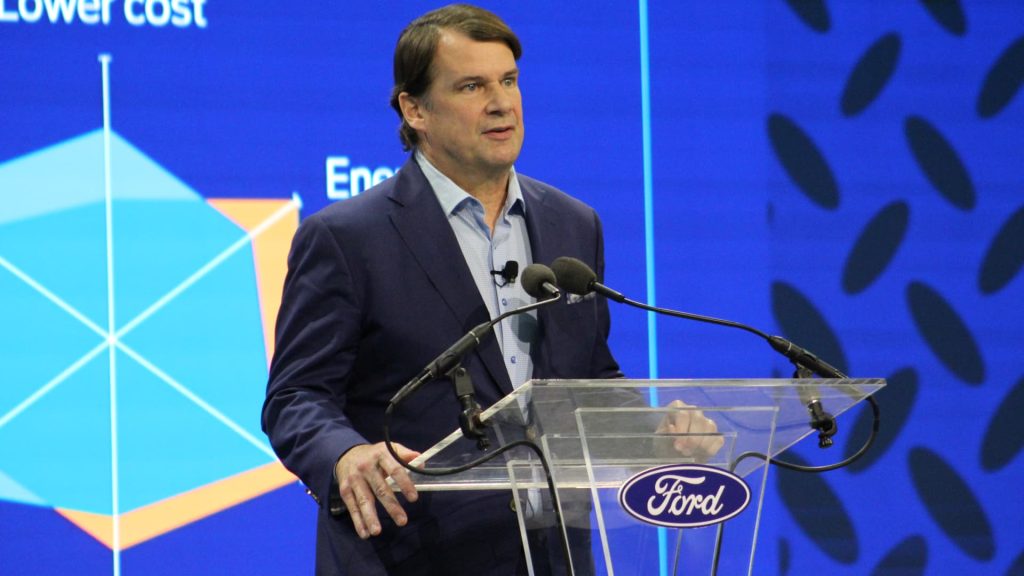Ford Motor is delaying production of a new all-electric three-row SUV and shifting to offer hybrid options across its entire North American lineup by 2030. The Detroit automaker announced on Thursday that it will continue to invest in EVs but is postponing production of the large SUV at a plant in Canada from 2025 to 2027 to allow the market to mature. The slow adoption of EVs and high production costs have led to Ford delaying or canceling $12 billion in planned spending on new EVs last year.
Ford’s CEO, Jim Farley, stated that Ford is committed to scaling a profitable EV business by bringing to market the right gas, hybrid, and fully electric vehicles at the right time. The automaker aims to develop next-generation EVs that are fully software-enabled with improving digital experiences and a range of potential services. In the first quarter of 2024, Ford’s EV sales increased by 86% from the previous year, with hybrid sales growing by 42% and traditional internal combustion engine vehicle sales up by 2.6%.
The automotive industry as a whole has been facing challenges in transitioning to EVs due to slower-than-expected adoption rates and high production costs. Despite this, Ford remains determined to invest in EV technology and bring new, innovative electric and hybrid vehicles to the market. The shift in EV plans reflects the changing dynamics of the automotive industry and the need for automakers to adapt to evolving consumer preferences and market conditions.
Ford’s decision to delay production of the new all-electric three-row SUV is part of its broader strategy to focus on offering hybrid options across its entire North American lineup by 2030. This strategic shift will allow Ford to scale a profitable EV business and meet the demand for gas, hybrid, and electric vehicles in the market. By postponing production of the large SUV, Ford aims to ensure that the market for EVs has matured sufficiently before launching the new model.
The delay in production of the all-electric three-row SUV is a strategic move by Ford to navigate the challenges of the EV market and ensure the success of its EV business. By investing in next-generation EVs that are fully software-enabled and offer improved digital experiences, Ford is positioning itself as a leader in the electric vehicle market. Despite the challenges facing the automotive industry, Ford remains committed to developing innovative electric and hybrid vehicles that meet the needs of consumers and drive the transition to a cleaner, more sustainable transportation future.
In conclusion, Ford’s decision to delay production of the new all-electric three-row SUV reflects the broader challenges facing the automotive industry in transitioning to a more sustainable future. By shifting its focus to offer hybrid options across its North American lineup by 2030, Ford aims to scale a profitable EV business and meet the demand for electric and hybrid vehicles in the market. The automaker’s commitment to investing in EV technology and developing next-generation EVs with improved digital experiences underscores its determination to remain a key player in the evolving automotive industry.















